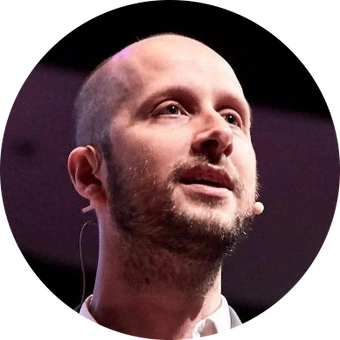Principal, Technical Program Manager - Copilot Notebooks

Microsoft
This job is no longer accepting applications
See open jobs at Microsoft.See open jobs similar to "Principal, Technical Program Manager - Copilot Notebooks" Matt Wallaert.Principal, Technical Program Manager – Copilot Notebooks
Redmond, Washington, United States
Save
Overview
The Principal, Technical Program Manager (TPM) for Copilot Notebooks serves as the technical orchestrator, bridging strategy with execution for this AI-powered productivity solution within Microsoft 365. Copilot Notebooks integrates chats, content, and intelligent suggestions into a unified notebook experience, requiring complex cross-functional planning and collaboration. The TPM’s primary mission is to deliver high-quality AI scenarios that align with the strategic vision of Copilot Notebooks, leveraging cutting-edge machine learning technologies to create intelligent and dynamic notebooks.
Microsoft’s mission is to empower every person and every organization on the planet to achieve more. As employees we come together with a growth mindset, innovate to empower others, and collaborate to realize our shared goals. Each day we build on our values of respect, integrity, and accountability to create a culture of inclusion where everyone can thrive at work and beyond.
Qualifications
Required Qualifications:
- Bachelor's Degree AND 8+ years experience in engineering, product/technical program management, data analysis, or product development
- OR equivalent experience.
- 6+ years of experience managing cross-functional and/or cross-team projects.
- 5+ years Industry experience with demonstrated expertise in the competitive landscape of note-taking platforms and technologies.
- 3+ Industry experience in Design, creating end-user experiences (UX)
- 1+ year(s) of experience communicating and translating between technical and non-technical stakeholders
Preferred Qualifications:
- Bachelor's Degree AND 12+ years experience in engineering, product/technical program management, data analysis,
- OR product development
- OR equivalent experience.
- 10+ years of experience managing cross-functional and/or cross-team projects.
- 1+ year(s) of experience reading and/or writing code (e.g., sample documentation, product demos).
- 1+ year(s) of experience bridging strategy and execution for AI-powered productivity solutions.
Technical Program Management IC6 - The typical base pay range for this role across the U.S. is USD $163,000 - $296,400 per year. There is a different range applicable to specific work locations, within the San Francisco Bay area and New York City metropolitan area, and the base pay range for this role in those locations is USD $220,800 - $331,200 per year.
Certain roles may be eligible for benefits and other compensation. Find additional benefits and pay information here: https://careers.microsoft.com/us/en/us-corporate-pay
Microsoft will accept applications for the role until July 12, 2025
Microsoft is an equal opportunity employer. All qualified applicants will receive consideration for employment without regard to age, ancestry, color, family or medical care leave, gender identity or expression, genetic information, marital status, medical condition, national origin, physical or mental disability, political affiliation, protected veteran status, race, religion, sex (including pregnancy), sexual orientation, or any other characteristic protected by applicable laws, regulations and ordinances. We also consider qualified applicants regardless of criminal histories, consistent with legal requirements. If you need assistance and/or a reasonable accommodation due to a disability during the application or the recruiting process, please send a request via the Accommodation request form.
Benefits/perks listed below may vary depending on the nature of your employment with Microsoft and the country where you work.
Responsibilities
- Cross-Functional Collaboration: Act as the connective tissue across engineering, product, design, data science, and marketing. Translate between technical and non-technical stakeholders to ensure alignment.
- Technical Execution & Quality Oversight
Partner with engineering to track and ensure timely delivery of features, uphold quality standards, and resolve technical blockers. This includes understanding architecture and performance metrics.
- Risk Management & Mitigation: Identify potential risks (technical, schedule, or resource-related) early and develop mitigation strategies to keep the program on track.
- Technical Communication: Regularly communicate status, key milestones, and emerging risks to the Leadership Team (LT). Translate complex technical information into clear, actionable insights for executive stakeholders, ensuring alignment and enabling informed decision-making across the organization.
- Metrics-Driven Decision Making: Define success metrics (e.g., KPIs, OKRs), track telemetry, and use data to guide decisions and measure impact.
This job is no longer accepting applications
See open jobs at Microsoft.See open jobs similar to "Principal, Technical Program Manager - Copilot Notebooks" Matt Wallaert.